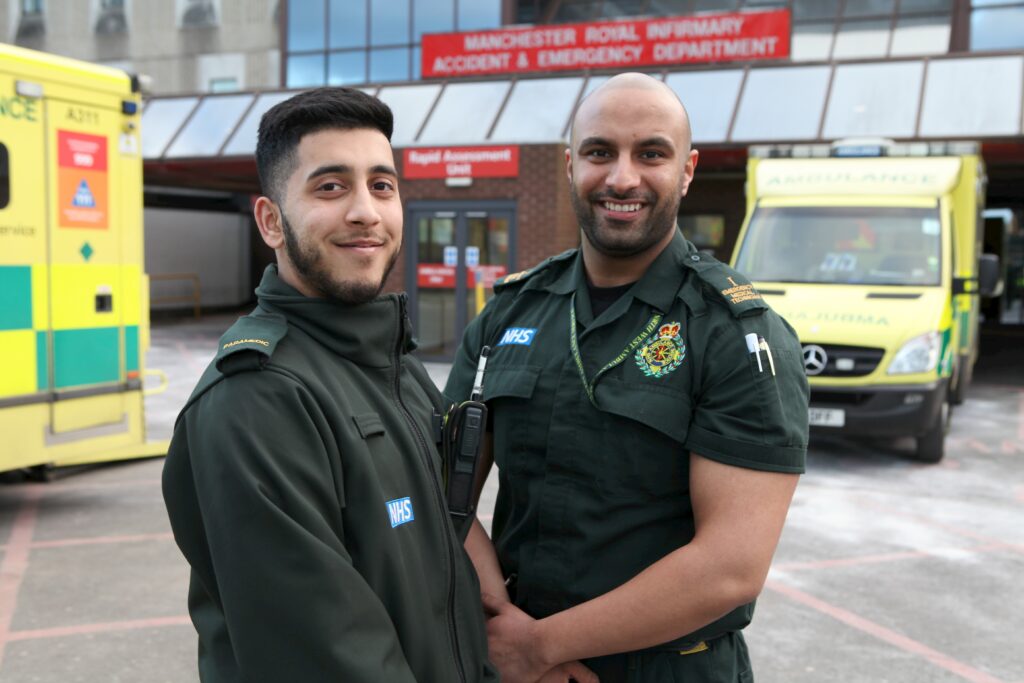Emergency medical technicians (EMTs) give compassionate care to patients, responding to 999 emergencies, inter-hospital transfers and urgent hospital admissions.

Working as a crew, often with a paramedic, you will assess, triage and treat patients. Some patients will need life-saving treatment from you and an urgent transfer to hospital in the ambulance, which you or your crew mate will drive with blue lights and sirens.
You will use problem solving skills to keep some patients out of hospital, by referring them to alternative care in the community or treating them at home.
You will ask the patient questions, explain your care and treatment and give reassurance and support to the patient and their relatives, so it’s important you can communicate effectively.
Our emergency service is open to the public 24/7, so shift patterns for emergency medical technicians cover 24 hours a day, seven days a week throughout the year, including evenings, nights, early starts, weekends and bank holidays.
EMTs undertake the Level 4 Diploma Associate Ambulance Practitioner apprenticeship and Level 3 Emergency Response Driving. Following an initial classroom-based course, you will continue your apprenticeship and learning whilst out on the road, responding to emergencies on an ambulance.
It is an extremely fulfilling job where you can make a real difference to people’s lives. It offers variety and challenge but the personal rewards are amazing.
Entry Requirements
- Minimum of 5 GCSEs including Mathematics, English Language and a Science at Grade 4-9 or equivalent